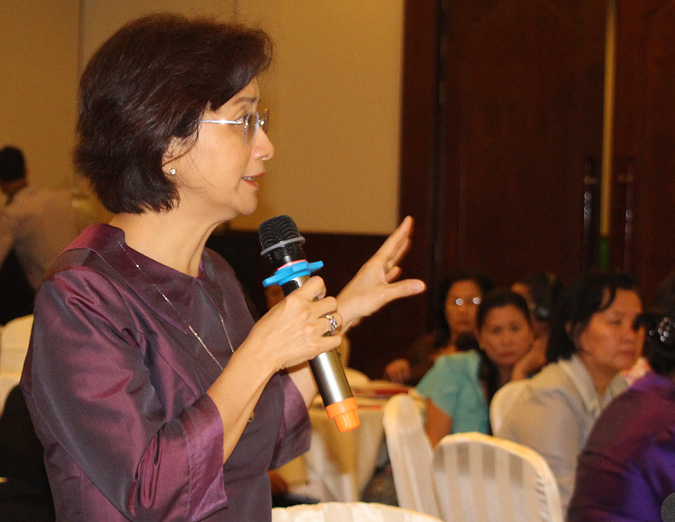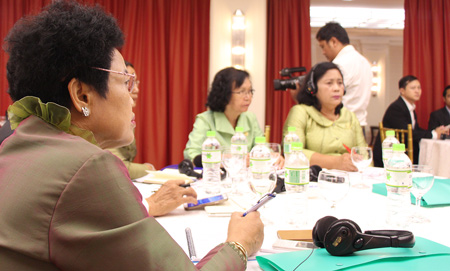How to accelerate CEDAW implementation in Cambodia
Date:

“Parliamentarians are in a unique position to raise awareness on the role of the Convention”. UN Women CEDAW expert Pramila Patten was crystal clear when she explained the role that Cambodian law-makers can play in using the
Convention on the Elimination of Discrimination against Women to strengthen gender equality.
Over the course of two days in June, UN Women and the Cambodian National Council for Women came together in Phnom Penh to host members of civil society and parliamentarians for a series of engaging dialogues on the Convention on the Elimination of Discrimination Against Women (CEDAW). Considered the “Women’s Bill of Rights”, CEDAW has been ratified by 189 countries making it one of the most widely ratified international treaties in the world. Cambodia has been a party to CEDAW since 1992, and has been working to advance gender equality in line with the Convention ever since.
With the strong support of the Minister for Women’s Affairs, H.E Ing Kantha Phavi, these two events yielded important insights into how Cambodia can accelerate actions to implement CEDAW.
Working together with civil society organisations on the first day, UN Women and the Cambodian National Council for Women considered the recommendations made by the CEDAW Committee to ensure that national law and policy better reflect Cambodia’s obligations to end discrimination against women. Ensuring gender equality in areas including health, education and access to justice was discussed, with Ministry representatives expressing strong commitment to see further improvements for women in both urban and rural Cambodia.
On the second day with members of the Cambodian National Assembly and Senate in attendance, the Minister for Women’s Affairs asked the group of law-makers “how can we include CEDAW in domestic law?” Providing specific examples of how Cambodia can take further steps to implement CEDAW in national legislation, expert Parmila Pattern encouraged a productive dialogue between the parliamentarians.

“How can we ensure that the law is developed to benefit women?” asked a Senator in attendance. According to Pattern, this question “hit the nail on the head” for identifying the number one priority in implementing CEDAW. As Pattern responded, the substantive impact of CEDAW in the lives of women in Cambodia and globally is what we all want to see.